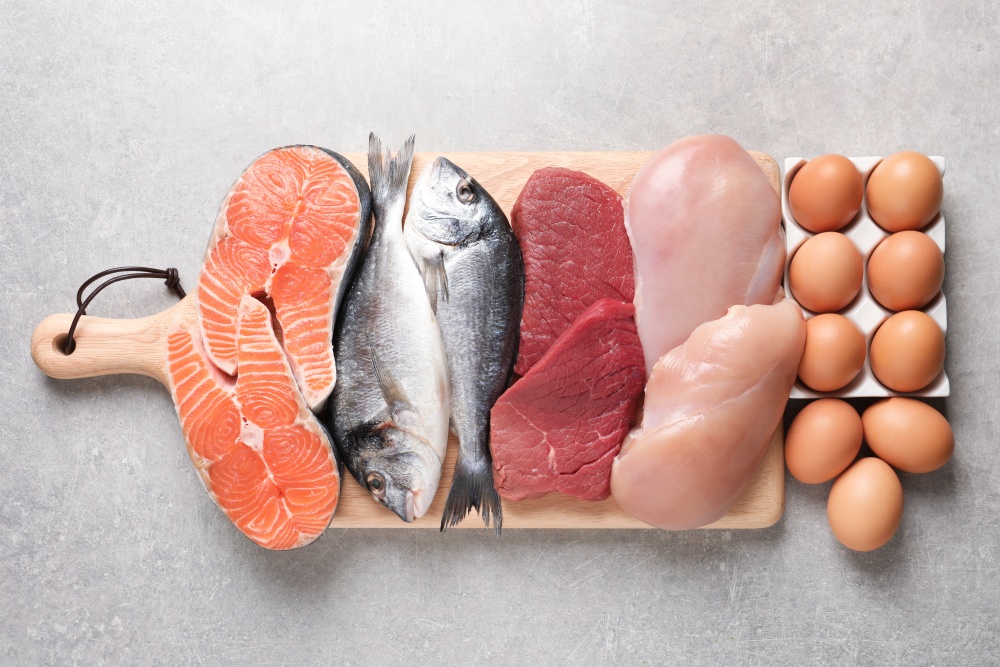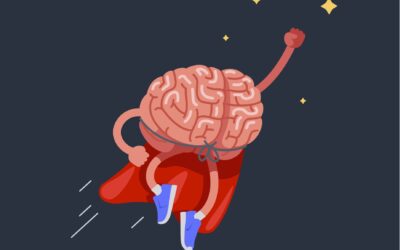Protein, often referred to as the “building blocks of life” is arguably the most critical macronutrient for brain health and repair and disease prevention as we age. One of three macronutrients found in food the body is primarily composed of protein (second only to water).
Proteins are essential for the growth, repair, and maintenance of tissues in the body (muscles and bone integrity), and they also play a role in many other bodily functions, such as enzyme production, hormone regulation, and immune system function.
All of that said, in this article, you will learn the critical role of protein in the body, the different types and implications on brain health, and how to ensure you are getting adequate protein in your diet to maintain brain health and prevent disability as you age.
Protein Metabolism
The body has a complex system for regulating the production and breakdown of proteins. This process is called protein metabolism.
Protein Catabolism
Protein catabolism is the process of breaking down the protein in food into amino acids that are then absorbed into the bloods stream.
Protein Anabolism
Protein anabolism is the processed of taking the amino acids and converting them into functional proteins.
Amino Acids
Amino acids are the building blocks of proteins. There are 20 different amino acids that the body needs to function properly, and they can be divided into two categories: essential and non-essential. Essential amino acids cannot be produced by the body and must be obtained through the diet, while non-essential amino acids can be produced by the body.
There are 9 amino acids that cannot be produced by the body and must be consumed through food. These include
- Valine
- Isoleucine
- Leucine
- Methionine
- Phenylalanine
- Tryptophan
- Threonine
- Histidine
- Lysine
What is the function of amino acids in the body?
- Tissue growth and repair
- Enzymes used for bodily functions (digestion, energy production, blood clotting, and muscle contraction)
- Act as hormones: chemical messengers that allow cells to communicate with one another
Protein Deficiency
It is important to note that if one essential amino acid is not available, protein synthesis can’t occur. With that said, protein deficiency (hypoproteinemia) has been linked to:
- Muscle loss
- Slowed growth
- Weakened immune system
- Weakened lungs and heart
What is a complete protein?
Foods that contain all of the essential amino acids are called complete proteins. These foods include:
- Beef
- Poultry
- Fish
- Eggs
- Dairy
- Soy
- Quinoa
- Buckwheat
Do amino acid supplements work?
There is little evidence that amino acid supplements are effective in protein synthesis in the body
Can you eat too much protein?
Consuming too much protein can also have negative effects on the body. Excess protein is converted into fat and stored in the body, which can lead to weight gain. It can also put a strain on the kidneys, which are responsible for filtering out waste products from the body.
Plant versus Animal Protein
Plant proteins and animal proteins differ in several ways, including their amino acid profiles, digestibility, and nutrient content. It is important to note that plant proteins do not contain all 9 essential amino acids.
Amino acid profiles
Animal proteins, such as those found in meat, eggs, and dairy products, are considered “complete” proteins because they contain all of the essential amino acids that the body needs. Plant proteins, on the other hand, are often considered “incomplete” because they may be lacking in one or more essential amino acids.
Digestibility
Animal proteins are generally more easily digested and absorbed by the body than plant proteins. This is because animal proteins are more similar in structure to human proteins, making them easier for the body to break down and use. Plant proteins, on the other hand, may contain compounds that interfere with digestion and absorption, such as phytates and fiber.
Nutrient content
Animal proteins are often higher in certain nutrients, such as vitamin B12, iron, and zinc, than plant proteins. However, plant proteins are often higher in other nutrients, such as fiber, antioxidants, and phytochemicals.
With all that said, plant-based diets require a deep understanding of how to combine plant proteins to ensure the body is getting all 9 essential amino acids to make it a complete protein. For example, beans are NOT a complete protein and must be combined with rice.
Articles you may be interested in:
Stroke Arm Rehab Daily Exercise Routine
A stroke or damage to the neurons in the brain can cause the inability to move the arm. It can also cause stiff and tight arm muscles. A stroke arm rehab routine should incorporate the principles of neuroplasticity (the ability of the brain to rewire when presented...
What is your Ikigai?
Not everyone wants to live a long life. But what about a happy and healthy life? If this is you, sit down and pull up a chair. Ikigai might be the answer.
Implications of Sleep and Neurological Rehabilitation
https://youtu.be/FWIX8Ht6bm4 Good quality sleep can dramatically improve neurologic rehabilitation outcomes. Getting adequate sleep might also decrease the rate of disease progression in some neurodegenerative diseases (multiple sclerosis, Parkinson's disease, or...
Stroke Rehabilitation: Overcoming Mental Barriers
Dealing with the aftermatch of a stroke can lead to a whirlwind of emotions including confusion, hopelessness, disappointment, and even despair. If you are in the process of recovery, these emotions are completely normal. Here I break down some of the most common...
Arm Exercises For Stroke Patients (Early Stage)
Arm exercises after a stroke are critical and should be performed daily. Here are the best exercises and why you should be doing these every day. Who will benefit from early-stage stroke arm exercises? The early stage of recovery is considered the first 6 months after...
Not what you get, but what you become
"What you get by achieving your goals is not as important as what you become by achieving your goals." -Zig Ziglar I often get messages from people who are feeling discouraged. "Progress isn't fast enough". "The process is too challenging". Oh, and by the way, "this...
The Gift of Language
“I will never do (X) ” “I Can’t” “I am always going to be this way” “I will be this way forever” “This is impossible” If you have been following me for a while, you know that I discourage this type of language. It is self-limiting at best, and self-destructing at...
Balance Exercises For Stroke Patients
Balance exercises for stroke patients are critical for improving walking confidence and returning to normal life What is Balance? Balance is the ability to maintain the center of mass (the body) within the base of support (the feet). Balance is also the ability of the...
Best Exercise Equipment for Multiple Sclerosis
If you have multiple sclerosis, home exercise equipment is critical for maintaining mobility. Neuroplasticity is the brain's ability to re-organize dependent upon exposure to new or novel experiences. After an acute exacerbation, neuroplasticity requires thousands of...
Best Brain Exercises For Stroke Recovery
Best Brain Exercises For Stroke Recovery A stroke can cause long-term damage to the brain, impair movement, and significantly diminish cognitive abilities. Mobility and strength training to retrain the muscles after a stroke is a huge part of the stroke recovery...










